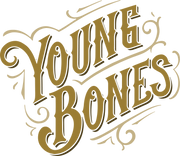FAQs
Bone Broth FAQs
1. What is bone broth? Bone broth is a nutrient-rich liquid made by simmering animal bones and connective tissues with water, vegetables, spices and vinegar for an extended period, typically 24-48 hours. This process extracts minerals, collagen, and other beneficial compounds from the bones.
2. What are the benefits of bone broth? Bone broth is known for its high collagen content, which can support joint health, improve skin elasticity, and promote gut health. It also contains amino acids like glycine, which may help reduce stress and improve sleep.
3. How is bone broth different from stock? Bone broth is simmered for a longer period than stock, allowing for a higher concentration of nutrients and gelatin. While both are made from bones, stock is typically cooked for a shorter time and may not have the same gel-like consistency when cooled.
4. How should I store bone broth? Bone broth can be stored in the refrigerator for up to two weeks or frozen for twelve months. When refrigerated, high-quality bone broth should take on a gel-like consistency, indicating the presence of collagen.
5. Can I drink bone broth during a fast? Yes, bone broth can be consumed during a fast. It is often used in bone broth fasts, where one consumes several cups of bone broth throughout the day to support digestive health while abstaining from solid foods.
Tallow FAQs
1. What is tallow? Tallow is rendered beef fat, typically sourced from grass-fed and finished cows. It is solid at room temperature and has a high smoke point, making it ideal for cooking.
2. How does tallow compare to other cooking fats? Tallow has a higher smoke point and longer shelf-life than many other cooking fats. It is rich in nutrients and provides a savory, beefy flavor to dishes. Unlike vegetable oils, tallow is free from harmful chemicals and is more nutrient-dense.
3. Is tallow the same as lard? No, tallow and lard are different. Tallow is made from beef fat, while lard is rendered from pork fat. Each has a distinct flavor and culinary use.
4. Can tallow be used for skincare? Yes, tallow is excellent for skincare due to its moisturizing and anti-inflammatory properties. It can be used to soothe skin conditions like eczema and psoriasis and as a natural moisturizer.
5. How should I store tallow? Tallow can be stored at room temperature in a cool, dark place. For longer shelf-life, it can also be refrigerated or frozen. Properly stored, tallow can last for up to a year or longer. To maintain its quality, keep tallow in airtight containers to prevent oxidation.
Collagen FAQs
1. What is collagen? Collagen is the most abundant protein in the human body, making up about one-third of its protein content. It is a key component of connective tissues such as skin, tendons, ligaments, and bones. Collagen provides structure, strength, and elasticity to these tissues, playing a vital role in maintaining their health and function.
2. What are the benefits of consuming collagen from bone broth? Consuming collagen from bone broth can offer numerous benefits, including improved skin elasticity and hydration, reduced wrinkles, and support for joint health. It may also promote stronger hair and nails, aid in digestion, and contribute to overall gut health. Bone broth is a natural source of collagen, along with other beneficial nutrients like amino acids, minerals, and gelatin.
3. How do I incorporate collagen from bone broth into my diet? Collagen from bone broth can be easily incorporated into your diet by drinking it as a warm beverage, using it as a base for soups and stews, or adding it to sauces and gravies. Some people prefer to sip bone broth throughout the day or include it in their fasting routines for additional health benefits.
4. Are there different types of collagen in bone broth? Yes, bone broth typically contains several types of collagen, primarily Type I, Type II, and Type III. Type I collagen is the most abundant and is found in skin, bones, and tendons. Type II collagen is primarily found in cartilage, and Type III collagen is found in skin, muscles, and blood vessels.
5. Is it safe to consume bone broth for collagen? Consuming bone broth for collagen is generally considered safe for most people. It is important to use high-quality bones from grass-fed, organic sources to avoid contaminants. Bone broth is a natural food product, and adverse reactions are rare.
6. Can collagen from bone broth help with weight loss? While collagen itself is not a weight loss supplement, consuming collagen-rich bone broth can support weight loss efforts by promoting muscle mass, improving joint health, and aiding in satiety. The protein content in bone broth can help you feel fuller for longer, potentially reducing overall calorie intake. Incorporating bone broth into a balanced diet and healthy lifestyle can contribute to effective weight management.
7. How long does it take to see results from consuming bone broth for collagen? The time it takes to see results from consuming bone broth for collagen can vary based on individual factors such as age, diet, and health status. Some people may notice improvements in skin hydration and elasticity within a few weeks, while joint and muscle benefits may take longer, potentially up to a few months. Consistent consumption is key to achieving the best results.
